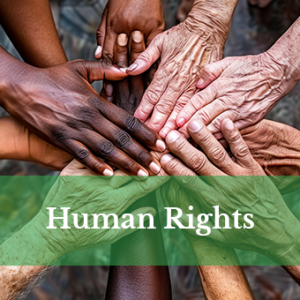
Elder Abuse and Neglect: Culture, Gender, Rights and Policy Implications in Zimbabwe
Presenter:
Nesta Hatendi, Pass It On Network (PION), Zimbabwe
Abstract
The population estimates based on the 2012 national census indicated 785,000 persons aged sixty and over living in Zimbabwe. By 2050, the projected total will be 2,556,000 persons over sixty years. This prediction heightens concern around elder abuse and neglect. The World Health Organization defines elder abuse as “a single or repeated act, or lack of appropriate action, occurring within any relationship where there is an expectation of trust which causes harm or distress to an older person.”
The presentation shall examine types of elder abuse and negligence, and mitigations to reduce prevalence in a Zimbabwean context, while analysing policy implications, advocacy, and practice. Qualitative data sources include texts, case studies, interviews, focus group discussions and observations. The presentation shall also explore linkages with culture, gender, and the rights of older persons.
Zimbabwe portrays a similar picture to Sub-Saharan African countries which report diverse types of elder abuse including physical, emotional/psychological, neglect, abandonment, sexual and financial abuse. The perpetrators include not only family members, partners, and relatives, but caregivers and others with influence over the older persons.
What contributes to the existence of elder abuse withing the society? Several reasons have been identified including ageism, poverty, limited social security, dependence on older persons and lack of awareness of basic human rights. Vulnerable older persons with cognitive impairments, like dementia or Alzheimer’s, for example, struggle to articulate and report instances of mistreatment resulting in underreporting of incidents and perpetuation by culprits.
Although under researched, elder abuse and neglect is a phenomenon which impacts on the older person’s health, human rights, and freedom to participate in society. It does not discriminate based on geography, languages, socio economic groups or ethnicities. Key instruments including the Constitution of Zimbabwe (2013), the Zimbabwe Older Persons Acts (2012) and other legal measures relating to the general population, are in place to curtail abuses. The government is also signatory to human right protocols at AU and global levels. However, domestication into country laws, implementation and resourcing the enforcement of such commitments continues to be a challenge.
Solutions to the lessening of elder abuse in Zimbabwe include political will to ensure adequate resources are set aside for evidence gathering and research on the issue, so evidence-based policies and practices are promoted by government supported by civil society organisations, especially those focusing on older persons’ human rights. These agents can play a critical role in promoting the reduction of elder abuse while fostering age-friendly environments among the increasingly ageing population.
It is important to address the information gaps in the education of target populations, including older persons, the judiciary, and law enforcers, who identify, report, and penalise perpetrators of elder abuse. Prevention is key and older individuals should be continually encouraged to voice their concerns without fear, understand their rights, and maintain open lines of communication. In turn, communities should continue to be observant, respect choices and continue to involve older persons within societal activities.
Bio(s):
Nesta Hatendi is an International Development Consultant with experience in humanitarian and international development organisations.
